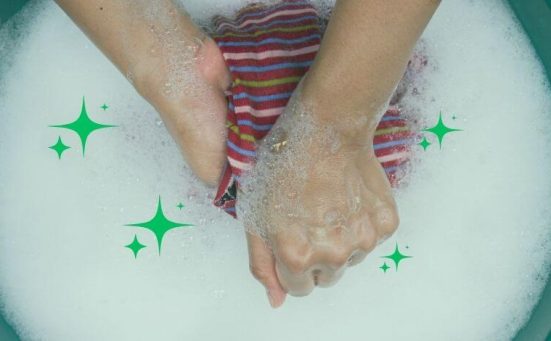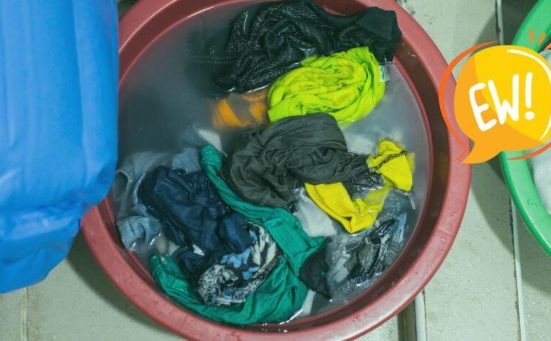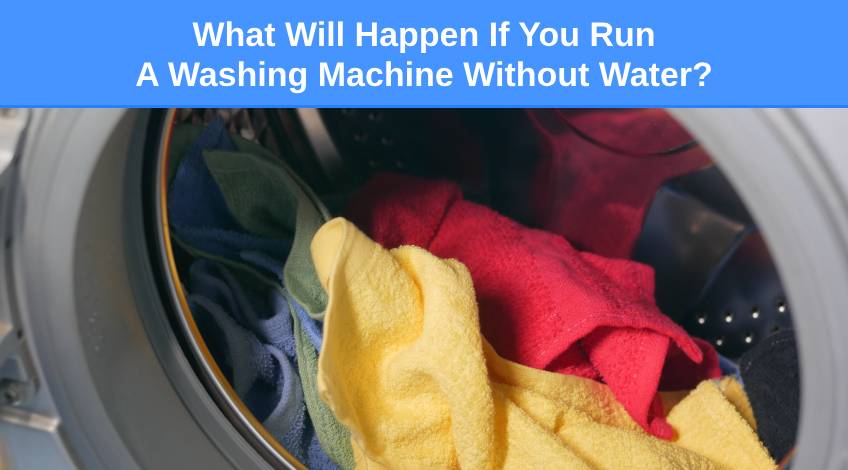
What Will Happen If You Run A Washing Machine Without Water?
This seems like an odd question really, who would ever think of washing laundry without water? Especially in a washing machine which is designed to use water to wash the laundry.
But what happens if, for some reason, your washing machine doesn’t get any water? Will it still run the wash cycle? Will the laundry get clean?
In this article we look at what would happen if you were to run the washer without water, and answer all of the above questions and more.
Will The Washing Machine Work Without Water?
The short answer is no, a traditional washing machine will not work without water. This is because washing machines use water to mix with detergent to create a solution that cleans dirt and stains from the laundry.
The mixture of water, detergent and agitation helps to remove dirt, oils, stains and smells from the materials being washed. If there was no water, this process wouldn’t work.
This is because water is needed to spread the detergent to all parts of the laundry and the agitation of the water helps to get the items in the drum to rub together to remove dirt.
With that said, there are experimental technologies being developed to reduce the amount of water used during the wash and rinse process. But currently water is an essential part of the laundry process.
How Water Is Used In Different Types Of Washing Machines
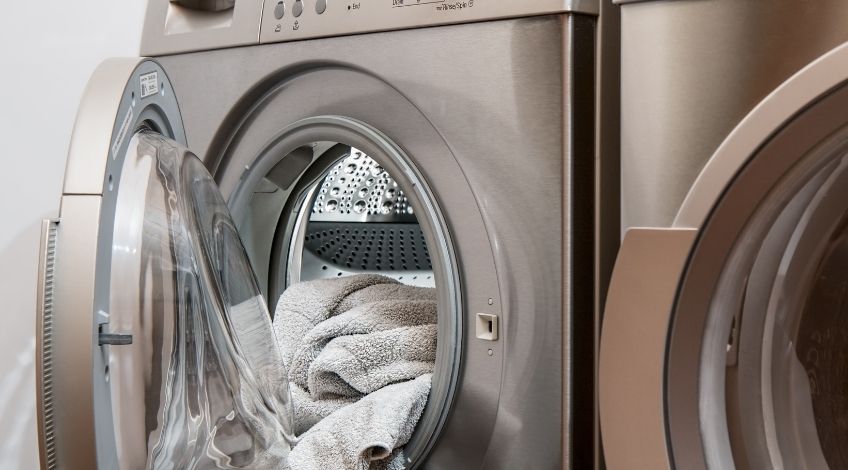
There are 2 main types of washing machines which are;
- Top Loaders
- Front Loaders
Top Loader Washing Machines
Top loaders consist of a large tub with a central agitator that moves the clothes round during the wash cycle. The tub fills with lots of water that helps to get the detergent into all of the fabrics and agitates the clothes to help remove stains.
This means top loaders are typically reliant on a large amount of water to create the friction and movement needed to get the laundry clean. The large amounts of water help to ensure that the laundry has a lot of room to move around and rub against each other.
This rubbing together combined with the motion of the water helps to spread the detergent all around the tub and get the clothes clean.
Disadvantages Of Top Loader Washing Machines
However, there are some disadvantages to this type of washer which include;
- High water consumption
To achieve good cleaning results, top loaders use a large amount of water. This can be costly if you’re on a water meter and is also not so environmentally friendly. - More likely to damage clothes
Due to the rough action and high water exposure, clothes are more likely to become damaged in a top loader.
Front Loader Washing Machines
Front loaders tend to use far less water to achieve a similar cleaning result. Many of the newer models have sensors that can adjust the water levels based on the size of the load and the types of fabrics being washed to use less water.
Front loaders offer a gentler wash, shorter cycles and an improved cleaning cycle as well as pretty substantial savings in water usage.
Disadvantages Of Front Loader Washing Machines
With that said, there are some disadvantages to front loaders which include;
- Higher purchase price
Generally top loaders are cheaper to buy than front loaders and their simpler design means they need less in the way of repairs overall. - Need specific detergents
The detergent requirements of front loaders tend to be more specific than that of top loaders. - Higher maintenance
Front loaders tend to need more in the way of maintenance than top loaders.
How Is Water Used In Washing Machines?
Water has an important role in washing machines and plays an integral part in the cleaning process.
Carrying Detergent
Water is needed to mix with the detergent which is then carried to each and every part of the laundry in the drum. It creates a soap filled solution that penetrates into the fibres of the fabrics and removes dirt, stains and oils.
As the water moves around in the drum, it ensures that every item gets covered and soaked in the detergent solution.
Helps Move The Laundry
The force of the water moving through the drum as it rotates helps to move the garments so that they rub against each other which helps to remove the dirt and stains. WIthout the fluidity of the movement of the water in the drum, the clothes wouldn’t move as much which would mean they wouldn’t clean as well.
How Does Water Temperature Affect The Cleaning Of The Laundry?
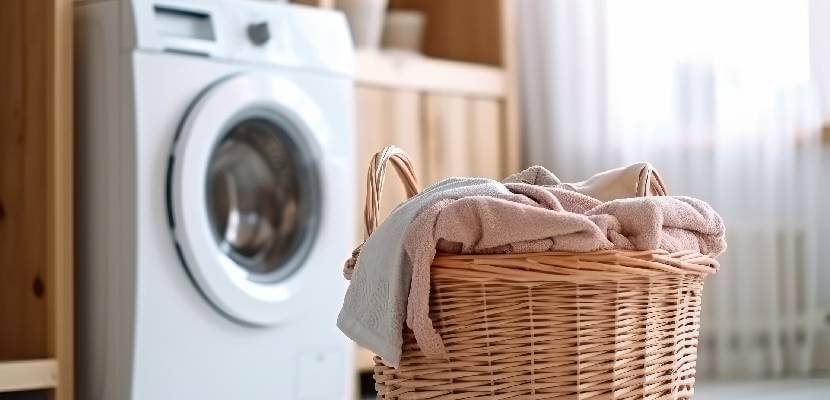
The temperature of the water used when washing clothes in the washing machine plays an important role in cleaning the items and the wear and tear of the fabrics.
Hot Water
Hot water is effective in removing tough stains as well as killing germs and bacteria. It’s great for washing severely soiled items like towels, bedding or underwear.
However, some caution is needed as hot water can also cause some fabrics to shrink , lose colour, fade or bleed.
Warm Water
Warm water is typically used on everyday items of laundry and balances fabric care with stain removal. Detergents dissolve readily in warm water and many stains and bacteria are removed at these mid-range temperatures without damaging fabrics.
Cold Water
Cold water is used on items to prevent colour bleed, fading or shrinkage. It is also the best choice for washing many delicate items.
On its own, cold water washes will not be as effective at removing stains and bacteria. However, there are now detergents and sanitisers specifically designed for use with cold water washes.
What Would Happen If There Was No Water In Either Type Of Washer?
Many modern washing machines are sensitive to water pressure and even have automatic sensor functions. This means they are designed to operate using a set amount of water and automatically open and close valves to let in and release water as required.
This is a feature found in most front loaders and also in some modern top loaders too. In front loaders it typically means that if no water is detected, the machine would start and the drum would turn.
However once the water failed to enter the appliance, it would automatically shut off and not operate until the water supply was reconnected.
This is a safety feature designed to prevent damage to the machine and the laundry. Washing machines dilute detergent with water which mixes together to clean the laundry.
If there’s no water, the detergent can damage the fabric as the surfactants in the detergent need water to remove stains.
Older top loading washers will start and run without any water being present. This is because they don’t rely on constant water pressure to operate.
However, using a top loader without any water or with an insufficient amount of water is likely to cause damage to the appliance. Which could lead to expensive repair bills for parts like damaged valves, pumps or even motor failure.
What About Hot & Cold Fill Washers?
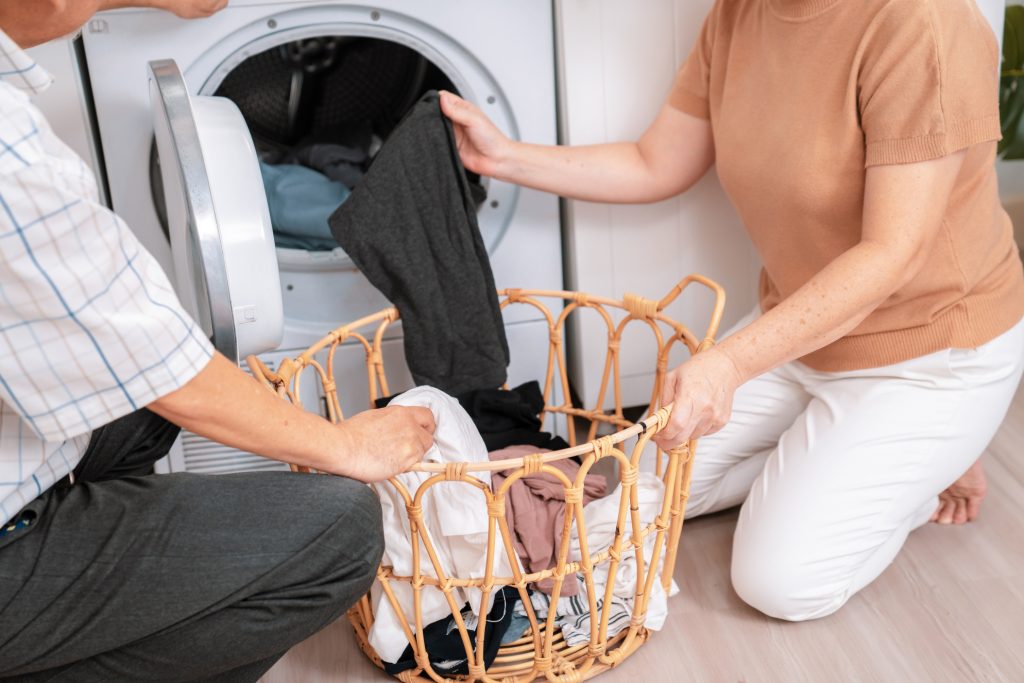
Many older washing machines used to have 2 water feeds, a hot feed which drew water from the hot water system of the home and a cold feed which drew water directly from the main water supply.
If the water supply was cut off when using this type of appliance, the chances are the wash cycle would commence because the hot water would typically be supplied from the home’s hot water tank or storage facility.
Once the wash cycle finishes, the machine would attempt to fill with cold water to run a rinse cycle and at that point the machine would shut down. In some cases, the appliance would automatically restart once the cold water supply has been re-established but not always.
Are There Any Functions On The Washing Machine That Will Work Without Water?
Depending on the type of washing machine you own, there are certain functions that will work without there being a water supply connected to the appliance. These include;
The Spin Cycle
Most modern washers have a “spin only” option which doesn’t require any water to function. However, this is not guaranteed as some machines will not operate at all unless there is a water supply connected to the appliance.
The Drain Function
As the drain function requires no water to work, this should also work without the appliance being connected to the water supply. This function is particularly useful after hand washing a few items.
You simply run a spin and drain cycle to extract and remove as much water as possible to speed up the drying process.
How Are Clothes Affected If They’re Washed Without Water?
Adding detergent onto your clothes without having a water supply can cause damage or at the very least staining to your clothes.
Laundry detergents generally contain surfactants which work by attaching one end of the molecular structure to the dirt or stain. The other end attaches to the water molecules.
This creates a bubble around the stain to lift the stain off the clothes. Without a water supply, the stain will remain in the fabric.
In those washing machines that have a hot and cold water feed, the garments would become soaked in a hot water and detergent solution which should clean the clothes.
The problem arises when the rinse cycle tries to initiate, as without a cold water supply, the clothes will not get rinsed. This would lead to the detergent remaining in the fabric which could cause staining or even damage to the material.
If this is the situation you find yourself in, you’ll need to remove the laundry from the machine and rinse it by hand in a sink or bucket. Alternatively, you could wait for the water supply to come back on, but this could mean rewashing the clothes again to remove detergent stains.
What Can You Do If The Water Supply Cuts Off Mid-Cycle?
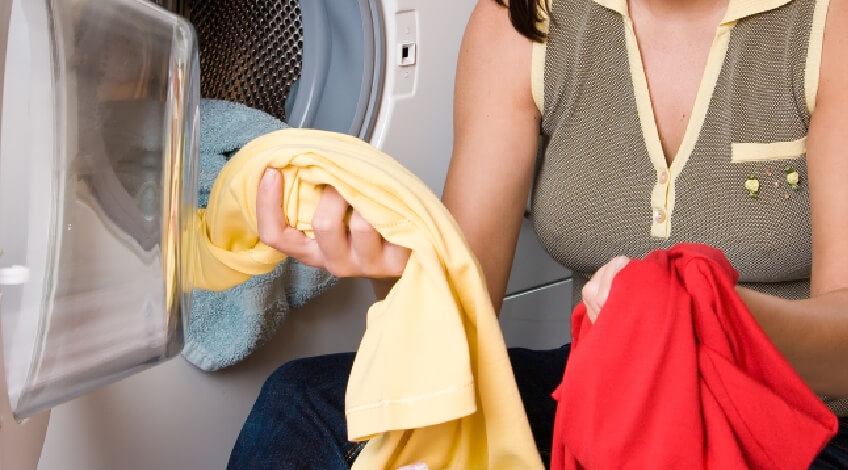
If you’ve started the machine and the clothes have been washed, but the water supply is cut before the rinse cycle starts, there are a few things you can do to get the detergent out of the laundry.
If your washer doesn’t rely on water pressure (mainly top loaders) You can pour a bucket of water into the tub and use this to rinse the laundry.
Front loaders are more problematic as the door typically locks once the wash cycle starts which means you would struggle to add water to rinse the clothes manually. Plus even if this was an option, there’s a good chance that you wouldn’t be able to add enough water to successfully rinse the detergent completely away.
Do All Washing Machines Need A Mains Water Supply To Work?
All modern washing machines rely on a mains water supply to successfully wash laundry. If your washer relies on water pressure and there is no mains water, the machine will not function.
The only type of washers that will work without mains water pressure are older top loading machines. However, even these will need water poured into the tub to operate the machine properly and clean your clothes.
Modern machines will start up, but without adequate water pressure, they will stop. Many modern washers cannot be operated at all without a constant water supply.
SEE ALSO: Can Citric Acid Damage Washing Machines?
Frequently Asked Questions
If you run the washing machine with the water supply turned off, it will start up but stop before initiating a wash cycle due to the lack of water.
Many washing machines will not run without a water supply. This is because the machine detects water pressure. If there is no water pressure detected, the appliance won’t start. However, it is often possible to run a spin and drain cycle as neither of these relies on water to operate.
Yes, the washer will start to spin the drum to allow the automatic sensor to adjust the settings of the machine to facilitate the best wash conditions for the load detected.
Also, follow us on Pinterest ...

